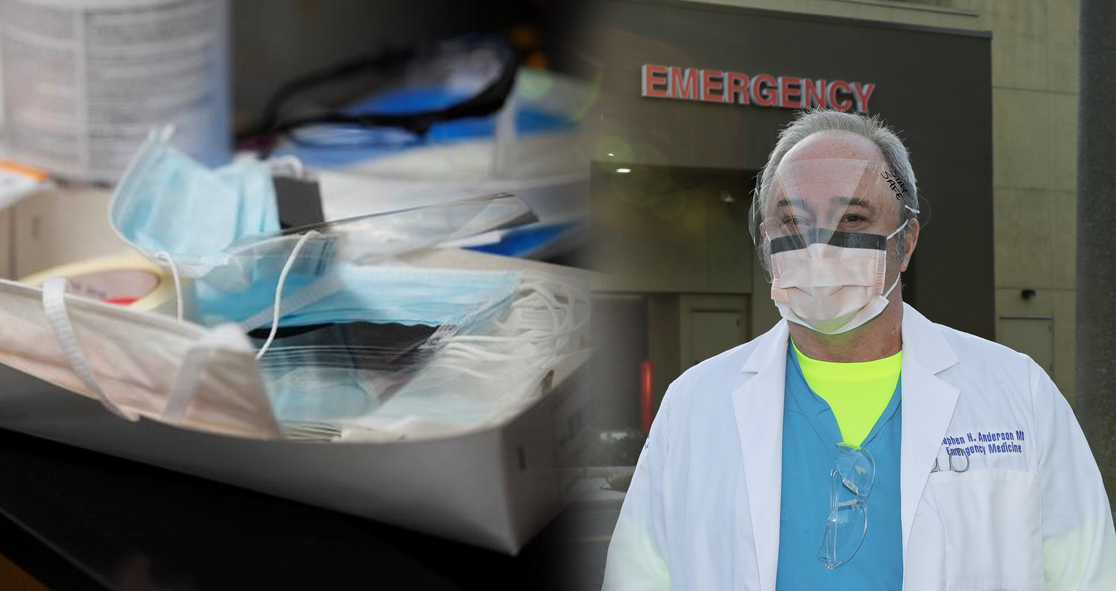It seems like doctors are facing tough times handling the ongoing coronavirus crisis due to a lack of protective gear.
In Minnesota, the Open Cities Community Health Center is considering total shutting down because it does not have enough facemasks, while surgeons at Barnes Jewish Hospital in St. Louis have been performing invasive procedures on COVID-19 patients with loose-fitting surgical masks.
With the number of coronavirus cases increasing, doctors and health workers have been facing a dire shortage of facemasks, surgical gowns, and eye gear.
Doctors are becoming increasingly anxious, fearing they may get exposed to the virus and could spread to their families and others.
“There’s absolutely no way to protect myself,” said Dr. Faezah Bux from central Kentucky who had intubated several older patients with coronavirus without proper facemasks and protective eye gear.
Dr. Bux added, “Not only can I not protect myself, I can’t protect my patients.”
On Thursday, President Donald Trump said the government had made efforts to overcome shortages, without providing any further details. He said millions of masks were in production.
“The federal government’s not supposed to be out there buying vast amounts of items and then shipping,” Trump said. “You know, we’re not a shipping clerk.”
Meanwhile, the State Department has advised American citizens who are abroad to return home now or plan to stay overseas until the pandemic is under control.
Globally, the virus has affected more than 245,900 and killed over 10,000 people so far. In the United States, COVID-19 has sickened 14,366 and killed 217 so far.
On Thursday, California Governor Gavin Newsom issued an order that says residents should “stay at home.”
Earlier this week, administrators of the Memorial Sloan Kettering in Manhattan told doctors that they are running out of the supply of respirator masks; however, they are working to get more.
Rebecca Bartles from the Providence St. Joseph hospital chain based in Washington said it is just a matter of days before hospitals and clinics run out of protective equipment. Such a situation could affect the country’s ability to respond to a pandemic, which is still in its early stages.
Bartles said, “We’re on mile one of a marathon, what does mile 25 look like?”
Two ER doctors in Washington and New Jersey are in critical condition, while dozens of other medical workers in the United States have already fallen sick, with hundreds forced into isolation.
One surgeon in Fresno, California, said, “We are at war with no ammo.” She said there is no access to even the most basic surgical facemasks.
Public health authorities said respiratory masks could be used for eight hours and should be disposed off after handling patients with COVID-19.
Meanwhile, many doctors and nurses have expressed their concerns over the use of regular surgical masks while examining and treating patients with COVID-19.
The CDC said regular surgical masks are “an acceptable alternative.” The statement came after it was found that there has been a shortage of special N95 respirator masks that can filter out more than 95 percent of all airborne particles.
While some doctors defended the guidelines, others argue that the change in guidelines is due to political expediency.
The American Nurses Association (ANA) said the guidelines were creating confusion over how to stay safe.
“We are concerned that C.D.C. recommendations are based solely on supply chain and manufacturing challenges,” said the ANA. “It’s also concerning that these recommendations do not offer strategies to address the limited manufacturing and supply chain of necessary personal protective equipment.”























